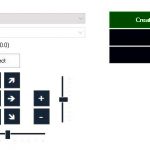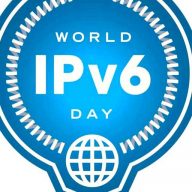Beginning: the way forward for ip in virtual reality
From author Michael Crichton’s forward-thinking novel Disclosure to popular films for example Ironman, Minority Report, and Star Wars – sci-fi continues to be predicting our future adventures in virtual and augmented reality for many years. Technologies have advanced to create virtual and augmented realities believable and accessible. Both virtual and augmented realities will probably create a significant impact within the coming decade. Now you ask , how can ip law get caught up?
It’s unclear whether rules for ip produced in VR, or based mostly on VR, will have to be recently produced. It’s also unclear whether rules governing “;real world” ip is going to be simply transposed 1in to the context of virtual reality. What the law states has adapted to a lot of technological changes through the years – when music began moving from CDs to digital, digital Millennium Copyright Act 2found action when internet broadband grew to become more commonplace, the FCC was handed 3additional authority. There’s without doubt that IP law will need to switch to accommodate VR in some manner or any other, but it’s difficult to imagine how IP law is going to be used in an online world.
Patenting VR technologies are challenging 4underneath the current law. Patents for VR are frequently 5much the same. It’s and can continue 6to become, difficult to decipher exactly what is a unique creation in VR and what’s extra time of the already established and evolving VR technology. In addition, VR environments are frequently 7considered abstract concepts because VR isn’t bound by most of the classical limitations in our reality. Subsequently, this can lead to patent litigation 8over whether an idea or idea is patent-qualified in other words “;drawn” to some patent-ineligible abstract idea. Alice Corp. v. CLS Bank Worldwide is definitely an apt illustration of an violation situation 9in regards to the patentability of the “;abstract 10idea”: a mechanical buying and selling platform. In Alice, the U . s . States Top Court held 11that abstract ideas aren’t patentable. This can be a difficult 12ruling for a lot of as VR because of its nature challenges the classic ideas of what’s, and what’s not abstract, as the majority of VR is, inherently, functioning inside a realm that’s both abstract and non-abstract.
In lots of scenarios, the virtual reality could be utilized by individuals using their personally-owned 13devices, and companies would own the VR network infrastructure and software. Now you ask ,: the master of 14the IP produced on these private systems? An imaginable scenario exists where an engineer designs something for a 3rd party on the independently-owned corporate network using 15computer-aided design (CAD) in 16a VR atmosphere. Some people would think the IP legal rights for designs built-in a VR would follow contemporary practices for IP built via a normal CAD program or technology existing within the real life, with VR, it might 17’t be that easy. The development of VR systems will probably be coupled with a brand new layer 18of contractual contracts between network proprietors and network users (like the beforementioned engineers).
The possession 19of certain creative legal rights (i.e., trademarks) as drafted in contracts legitimate-world applications might be under heavy scrutiny when put on creative works beginning in the VR atmosphere. For example, say famous Company An authorized using its emblem to Company B to create jackets. Does Company B have the authority to use Company A’s emblem on the virtual form of certainly one of their jackets in VR? Contracts that license using IP inside a real-world atmosphere might not 20be transferable to using that IP in VR. On the other hand, contracts particularly tailored to license using IP in VR might not cover21, or include, the legal rights essential for using that IP within the real life.
Ultimately, virtual the truth is an empty slate. Presently, there are other questions than you will find solutions regarding how current law will be relevant to IP licensing for virtual and augmented realities. A lot of what the law states continuing to move forward must be developed once again or adapted from the non-virtual counterpart.
Aaron Johnston is really a rising second-year law student at Wake Forest College School of Law. He holds a Bs and Master of Science in Biomedical Engineering in the College of Florida and it has tried two startup companies. Upon graduation, he promises to practice Ip law.

Resourse: http://ipjournal.law.wfu.edu/2019/08/beginning-the-future-of-ip-in-a-virtual-reality-world/

How to Set Up Your Playstation VR
Video COMMENTS:
- King Rutledge: Gabe
- fludictag 174: My ps vr is different
- Legit Nab: Dumbass dont show what the cable look like







